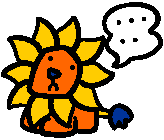
--------------------------------------------------------------
#14 家畜の様な動物の方が餌ももらえるし保護もされているのだから
幸せなのではないですか?
--------------------------------------------------------------
この質問者はここで二つの事を前提にしています。一つには餌をもらい保護してもらえ
さえすれば幸せで満ち足りた生活が送れると言う事です。もう一つは動物が実際に餌を
もらい保護されていると言う事です。この前提は二つとも疑わしいものです。
もちろん動物が餌をもらっている事は間違いありません;なんといっても食べるために
は大きくし太らせる必要がありますから。極めて疑わしいのは、鶏を例にとると、工場畜
産のもとで育てられる鶏がいかなる意味においても「保護されている」と言えるのかとい
う点です。
鶏は不具になる事から守られてはいません。くちばしを苦痛とともに切り取られるから
です。(*1)
鶏は不快さから守られてはいません。密集の中で不自然な状態で飼われているからで
す。
そして最後には補食者からも守られてはません。屠殺され、人間に食べられてしまうか
らです。
餌をもらい保護してもらえさえすれば幸せだという考え方にも疑問が投げかけられま
す。
ローマ時代にガレー船をこがされていた奴隷は食べ物ももらっていたし保護もされてい
ました。それにもかかわらず彼等はおそらく幸福を求めるために、そうした保証を投げ
うってでも自由の身になる事を望んだでしょう。アメリカの奴隷についても同様の事が言
えます。
最後にこの質問者の見解には道徳的問題があるという点があります。もう一度、#13の
質問に出てくる夫婦の例を考えてみて下さい。この夫婦は食べてしまうまでは、わが子に
ご飯を食べさせ保護することでしょう。しかしだからと言って私達はこの夫婦がやる事を
良しとはしないでしょう。それがどうして鶏に対してだと、いいことになってしまうので
すか?
DG
参照:
#13
訳注)*1. くちばしの切断(デビーキング):
密集で飼われている鶏はストレスのためお互いを
つつきあい時には共食いをする。養鶏業者はその
損失を防ぐために上くちばしの先端を切りとる。

...............



-----------------------
#14 Don't the animals we use have a happier life since they are fed and
protected?
-----------------------
The questioner makes two assumptions here. First, that happiness or
contentment accrues from being fed and protected, and second, that
the animals are, in fact, fed and protected. Both of these premises can
be questioned.
Certainly the animals are fed; after all, they must be fattened for
consumption. It is very difficult to see any way that, say,
factory-farmed chickens are "protected". They are not protected from
mutilation, because they are painfully debeaked. They are not protected
from psychological distress, because they are crowded together in
unnatural conditions. And finally, they are not protected from predation,
because they are slaughtered and eaten by humans.
We can also question the notion that happiness accrues from feeding
and protection alone. The Roman galley slaves were fed and protected
from the elements; nevertheless, they would presumably trade their
condition for one of greater uncertainty to obtain happiness. The same
can be said of the slaves of earlier America.
Finally, an ethical argument is relevant here. Consider again the
couple of question #13. They will feed and protect their infant up to
the point at which they consume it. We would not accept this as a
justification. Why should we accept it for the chicken?
DG
SEE ALSO: #13




